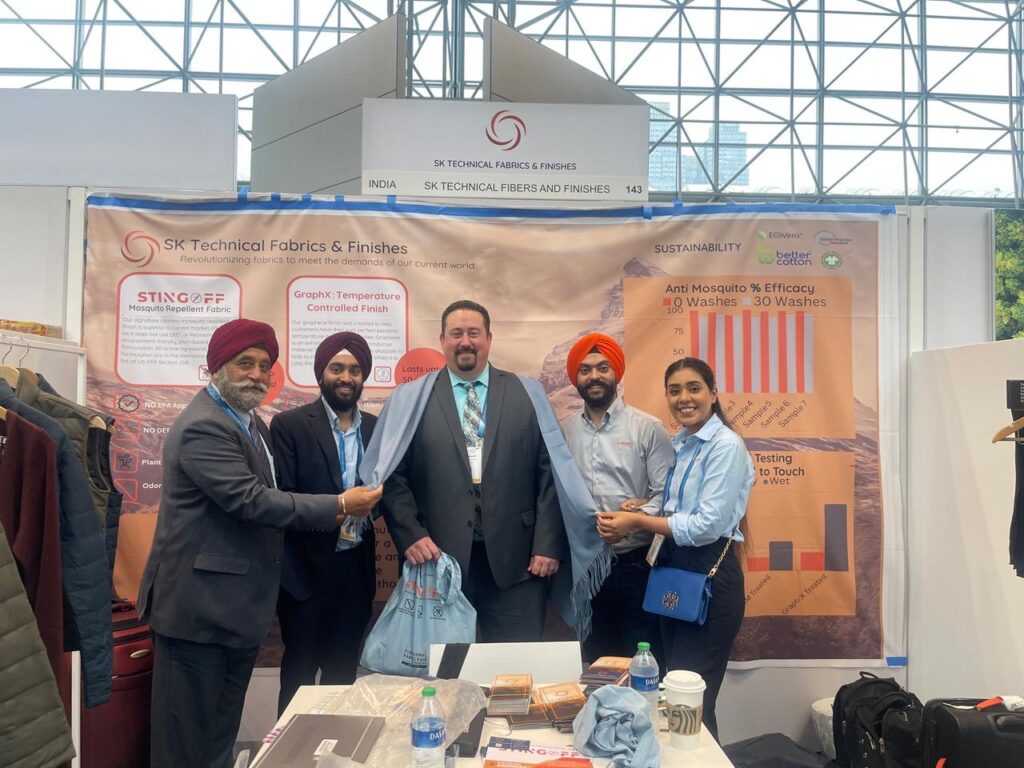A vegetarian Mosquito Repellent which harms neither the Humans nor the Mosquitoes
New York. A US-trained Indian textile engineer has developed a brand new chemical application that repels mosquitoes without harming the human body. In fact, not even the mosquito.

The New Delhi-born Gurjot Singh is the brains behind the chemical application known as StingOff that could prove invaluable in jungle infested areas, especially those prone to flooding. It is actually a unique plant based formula that is available for use on a much wider scale than ever before. The white coloured and odorless product is applied during the manufacturing stage of any fabric that include both natural and synthetic materials. The innovation has been launched here, in the US Fashion capital.
“I was on a fishing trip in North Carolina”, 28-ear old Gurjot explains. “It so happens I had no luck in catching any fish, but during that trip I encountered and suffered from multiple mosquito bites. As a textile engineer my thought process inspired me to find a way of repelling all mosquitoes without experiencing harmful side effects.
“You could say the positive by-product of that fishing trip helped me evolve a plan to somehow incorporate a suitable anti mosquito chemical that would blend into all fabrics without harmful side effects.” Maybe, he said lightly, it could be shown in a fashion event on Safe Fabrics some day.
In fact, earlier this week StingOff was showcased for the first time as a start-up enterprise at New York’s Functional Fabrics Fair at the Jarves Conventions Centre in the heart of the city. It generated plenty of interest and Gurjot now is waiting for relevant follow ups. His colleagues, friends and family back home in Delhi are convinced that the sky is the limit for StingOff.
Explaining the inovation, Gurjot said “When l got back to the campus at North Carolina State University I shared my thoughts with fellow undergraduates who encouraged to press ahead with the idea.
“On the following day l looked at the current usage of existing anti mosquito repellents. During that research l could only locate synthetic chemicals, highly dangerous for human beings, that had been used by the US army in mosquito infested areas like Iraq, Afghanistan and other areas round the globe.
“Plenty of research papers have highlighted the dangers of the existing repellents.”
After returning to India in 2022 Gurjot shared his thoughts with his father, Rupinder, who heads a fabric manufacturing company, SK Weaving, with headquarters in Delhi and several factories in Surat. “My father said it was a great idea and he would back me to the limit.”
“At that point with my father’s encouragement l set up a small laboratory in Delhi where l experimented with different chemical recipes and application processes that could be applied to all kinds of fabrics, including the ones we were manufacturing in Surat. It took me eight months to perfect the process and test the material with both in-house and third party labs all over India.
“We now believe we have mastered a unique, world beating process that will be of use to civilian families as well as military forces deployed in mosquito infested area. For example, take the US army that operates in many areas infected by mosquitos. I am sure the Pentagon has extensive records of how their soldiers and officers have been infected by such dangerous diseases as malaria and dengue fever. It is a well known fact these diseases will slow down any army’s efficient use of its own resources.”
Some of the highlights of Stingoff are that the fabrics on which it is applied can sustain 50 washes, in machine wash. The application itself is odourless and anti-micorbial.
Just imagine, Gurjot says, how they could benefit from our mosquito repelling formula applied to shirts, jackets, sheets, tents and any other relevant fabrics. Just think of the huge savings that could be achieved by defence fores across the world, and the comfort of sound sleep. “No chemicals and very low costs.” Even in India, or other countries, monsoons and flooding result in breeding billions of mosquitos, bringing with them disease and if nothing else, sleepless nights and stingy irritants.





